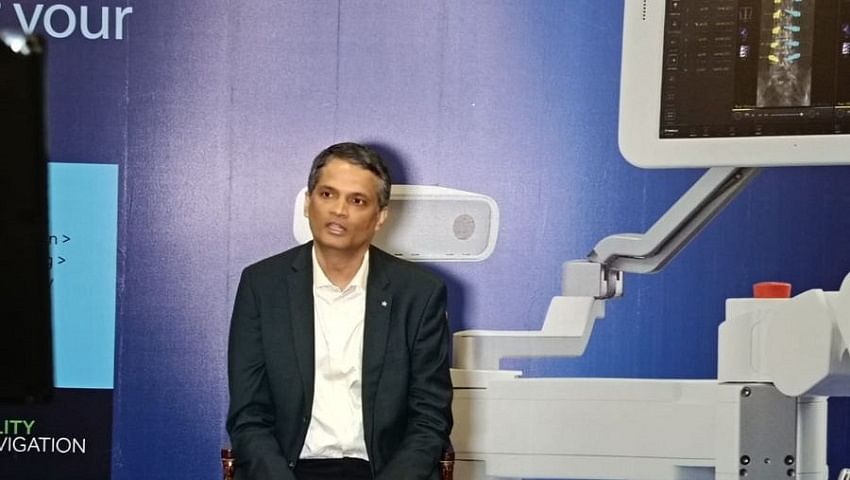
Bringing Advanced Robotic Spine Surgery to Bangalore for the First Time
Bengaluru (Karnataka) [India], August 20: Spinal issues such as herniated discs, spinal stenosis, scoliosis, and degenerative disc disease can significantly impact a person's quality of life. Traditional treatment methods often involve open surgery, which can be invasive and require extensive recovery periods, posing higher risks of complications. In contrast, robotic spine surgery offers a minimally invasive solution with numerous advantages.
Robotic spine surgery involves smaller incisions, leading to less tissue damage and quicker healing. The enhanced precision provided by robotic systems reduces the risk of complications and improves surgical outcomes. As a result, patients typically require shorter hospital stays, facilitating a faster return to normal activities.
At a recent press meet, esteemed doctor Dr S. Vidyadhara, Chairman and HOD - Spine Surgery and Consultant - Robotic Spine Surgery, at Manipal Hospitals shared their insights and experiences on this transformative approach to spinal surgery, "The introduction of robotic spine surgery at our institute is a significant leap forward in providing precise and minimally invasive treatment options for patients with spinal disorders. This technology enhances our ability to deliver superior outcomes and improve the quality of life for our patients along with enhancing the accuracy of surgical procedures, reducing recovery time and improving overall patient outcomes. This innovative approach allows us to address complex spinal issues with greater precision and safety."
Manipal Hospitals, Bengaluru is proud to announce a groundbreaking achievement in spinal care to perform robotic spine surgeries. This pioneering initiative represents a significant leap forward in treating spinal issues, providing patients with a safer, more precise, and minimally invasive alternative to traditional surgical methods. Patients undergoing minimally invasive (MIS) robotic spine surgery typically experience shorter hospital stays, often just a few days, compared to the longer hospitalization required for open surgery due to larger incisions and a more extensive healing process. This advanced approach not only improves patient outcomes but also solidifies the hospital's position as a leader in medical innovation in Southern India.